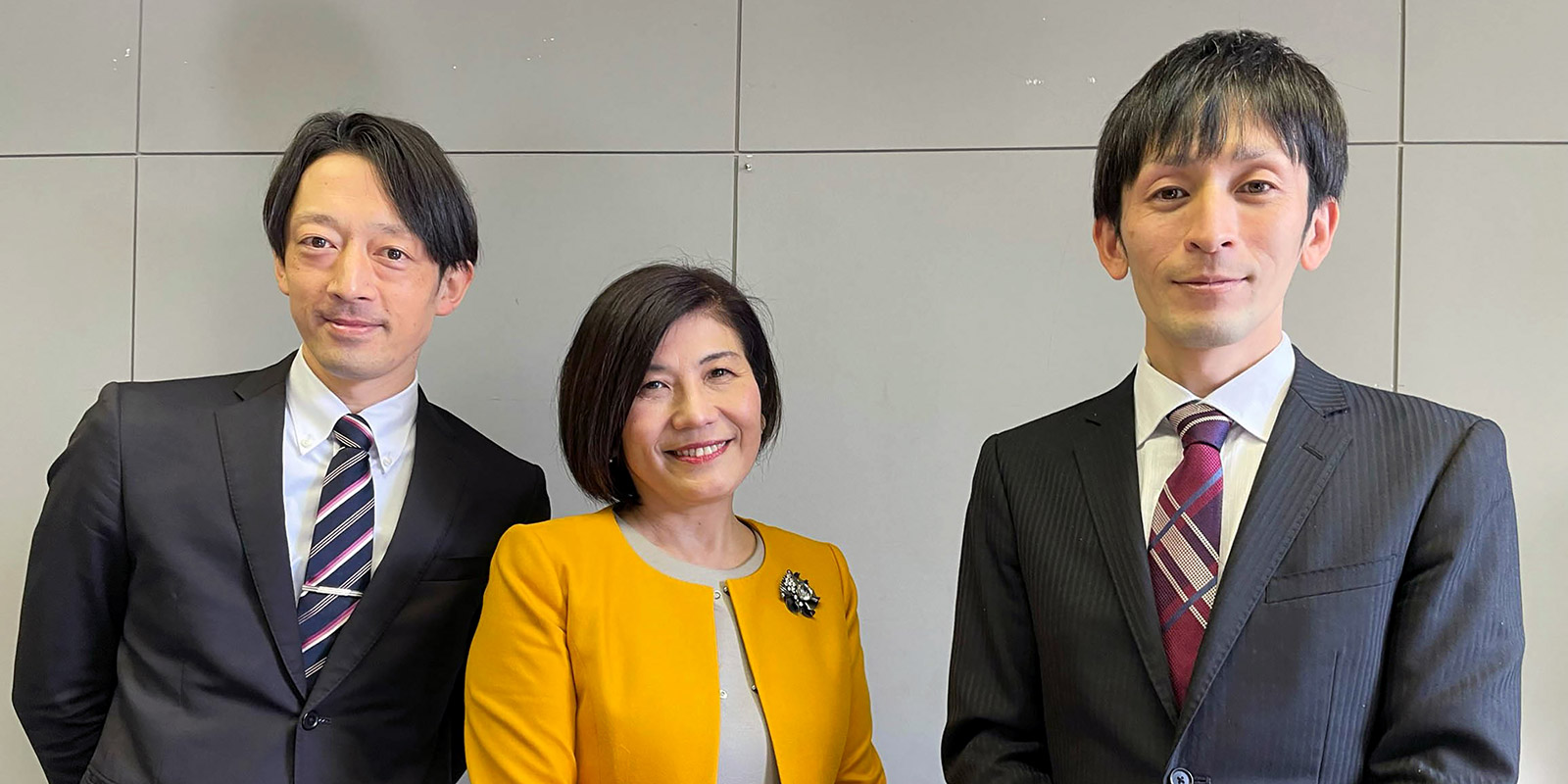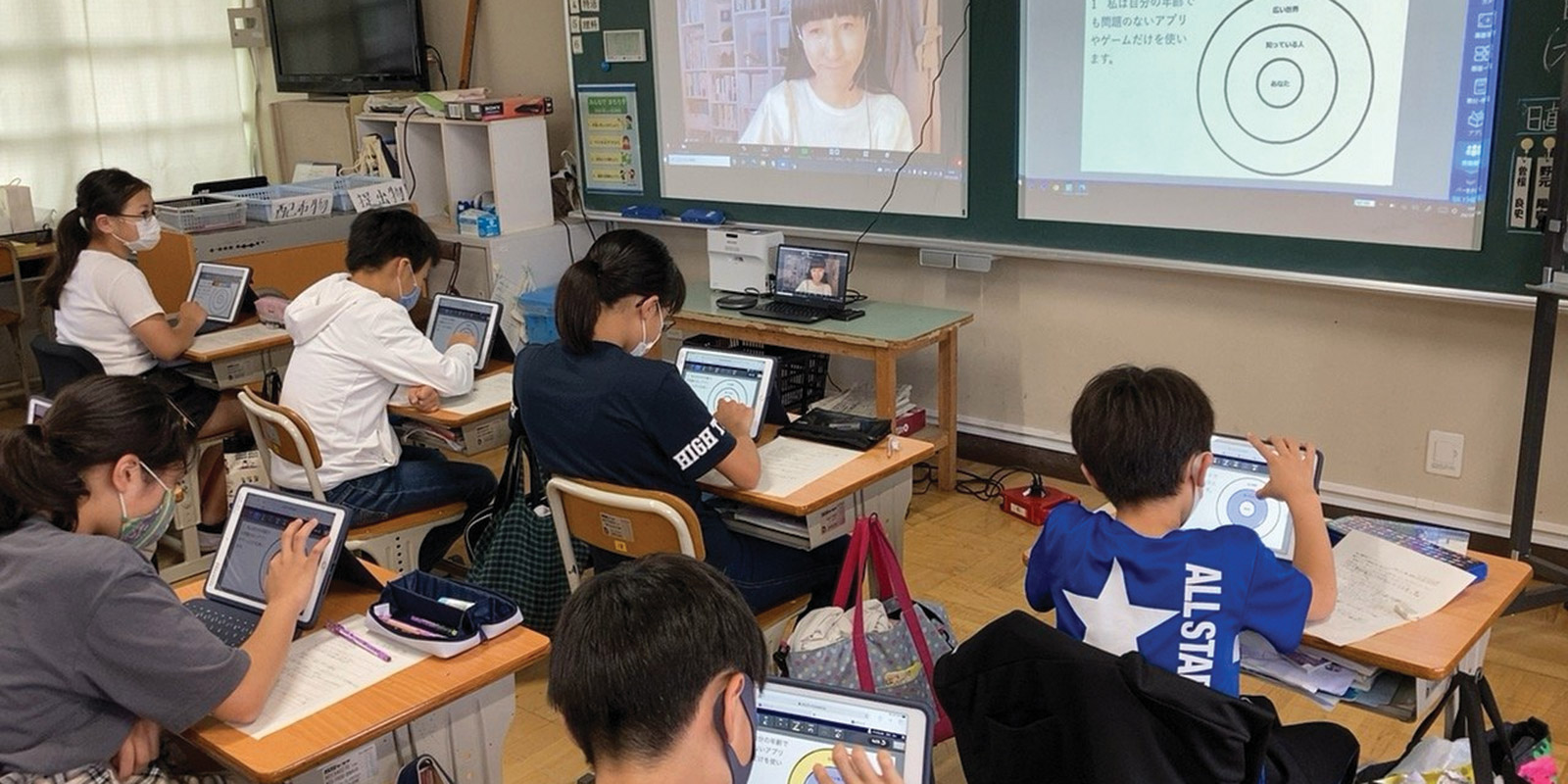The new school
The city of Suita has armed each one of its pupils with a digital device. Ili Saarinen meets those behind the ambitious plan
Suita, a city of some 385,000 people in northern Osaka Prefecture and famous for hosting the 1970 World’s Fair, is undertaking an educational revolution. The city is half-way through a five year plan to comprehensively and systematically rethink how best to teach pupils at its 36 elementary and 18 junior high schools, including making teachers more IT savvy. And it is betting big on technology. As part of its GIGA (Global and Innovation Gateway for All) program, the city has invested in a colossal 29,612 devices—including 22,105 tablets for elementary school pupils and 7,507 for those in junior high. The result is that teaching in the city’s schools now draws heavily on digital resources.
“With the introduction of this one-device-per-student concept, we have entered a year of major changes in education,” says Atsuko Kusaba, director of the Suita City Education Center. “Teachers and staff need to be thoroughly familiar with the devices in order for children to use them effectively in the classroom, and the sense of mission and spirit they bring to the table will help Suita become a leader in digital education.”
 From left: Masato Fukui, Atsuko Kusaba, Akira Sonoda | Picture Courtesy of Suita City
From left: Masato Fukui, Atsuko Kusaba, Akira Sonoda | Picture Courtesy of Suita City
The city has invested in a colossal 29,612 devices—including 22,105 tablets for elementary school pupils and 7,507 for those in junior high
Changing minds
Before the devices were rolled out, the local board of education organized a study group for teachers, inviting them to practice using the technology on their own and identify potential issues beforehand. “Teachers [in the study group] also worked on preparing class materials and shared their work with all schools,” says Akira Sonoda, teaching supervisor at the Suita City Education Center. “This was a major step in order for pupils to be able to use the devices to their full potential.” But change does not come easily, especially when all the devices need to be connected to one secure network. The rollout was entrusted to educational infrastructure experts Uchida Yoko, who, tasked with everything from network-building to tech support, went above and beyond to ensure the project’s success.
The GIGA program aims to arm the next generation with the digital skills they will need in later life. It is hoped the new devices will break with the tradition of pupils simply copying facts off a blackboard and usher in a new age when they interact with the subject matter, creating a deeper understanding. “For example children can take questionnaires about a theme they are interested in, summarize the learned results in a graph and present it to the class and interact with others,” says Kusaba.
 Students at Kitayamada Elementary School in Suita learning about digital citizenship | Picture Courtesy of Suita City
Students at Kitayamada Elementary School in Suita learning about digital citizenship | Picture Courtesy of Suita City
For all the benefits of the online world, there are pitfalls such as trolling and online abuse. Part of Suita city’s efforts is to teach students how to navigate this new world. “Digital citizenship is the idea of being aware of your actions within the digital world, just like you would be in the real world—being responsible for what you say and what you do,” says Sonoda. “Digital citizenship education will enable children to make their own decisions as good digital users.”
“Regardless of the situation, Suita City has always placed the needs of the children first”
According to Masato Fukui, deputy director of the Suita City Education Center, selling the program to the older generations hasn’t always been easy. “We’ve had mixed responses to the move away from traditional ‘blackboard-led’ teaching,” he says. “We think it’s very important to continue working on shifting the mindset of the parents.”
Sonoda believes a change is inevitable. “In the future, digital devices will become something like pencil and paper, regular stationery,” he says. “Regardless of the situation, Suita City has always placed the needs of the children first. And that belief has been consistent in all aspects of what we have been working on.”